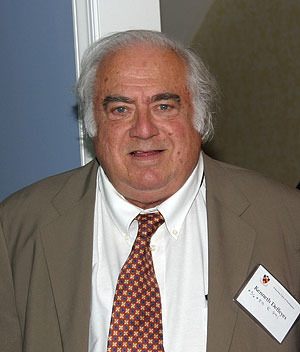Kenneth S. Deffeyes

Kenneth S. Deffeyes, professor emeritus of geosciences, Princeton University, Princeton, New Jersey
Kenneth Deffeyes grew up in the oilfields of the American West. In addition to his academic work in petroleum geology and petroleum engineering, he worked summers as a pipe-yard hand, roustabout, and seismic-crew and chem-lab assistant. After receiving his B.S. in geology and engineering from the Colorado School of Mines (1953), he began a career with Shell Oil that was interrupted by the military draft. Completing his service, he went on to graduate study in sedimentology at Princeton University, earning an M.S. (1956) and a Ph.D. (1959) in geology and then rejoined Shell at its research lab in Houston, where staff geologist M. King Hubbert had recently (1956) issued his controversial prediction that U.S. oil production would peak in the early 1970s.
In 1962, in part because of Hubbert’s prediction, Deffeyes switched to teaching. He taught briefly at the University of Minnesota and Oregon State University before joining the Princeton faculty in 1967 and in 1972 collaborated with two colleagues to write the first introductory geology textbook organized around plate tectonics, which was just gaining acceptance in academic circles then. He continued to participate in the oil business as an adviser for drilling programs and as an expert witness in emerging class action suits.
After retiring from teaching, Deffeyes published two books on “peak oil” and the world oil crisis, Hubbert’s Peak (2001) and Beyond Oil: The View from Hubbert’s Peak (2005), in which he discusses the consequences to the United States and the world of reaching the peak of oil production.